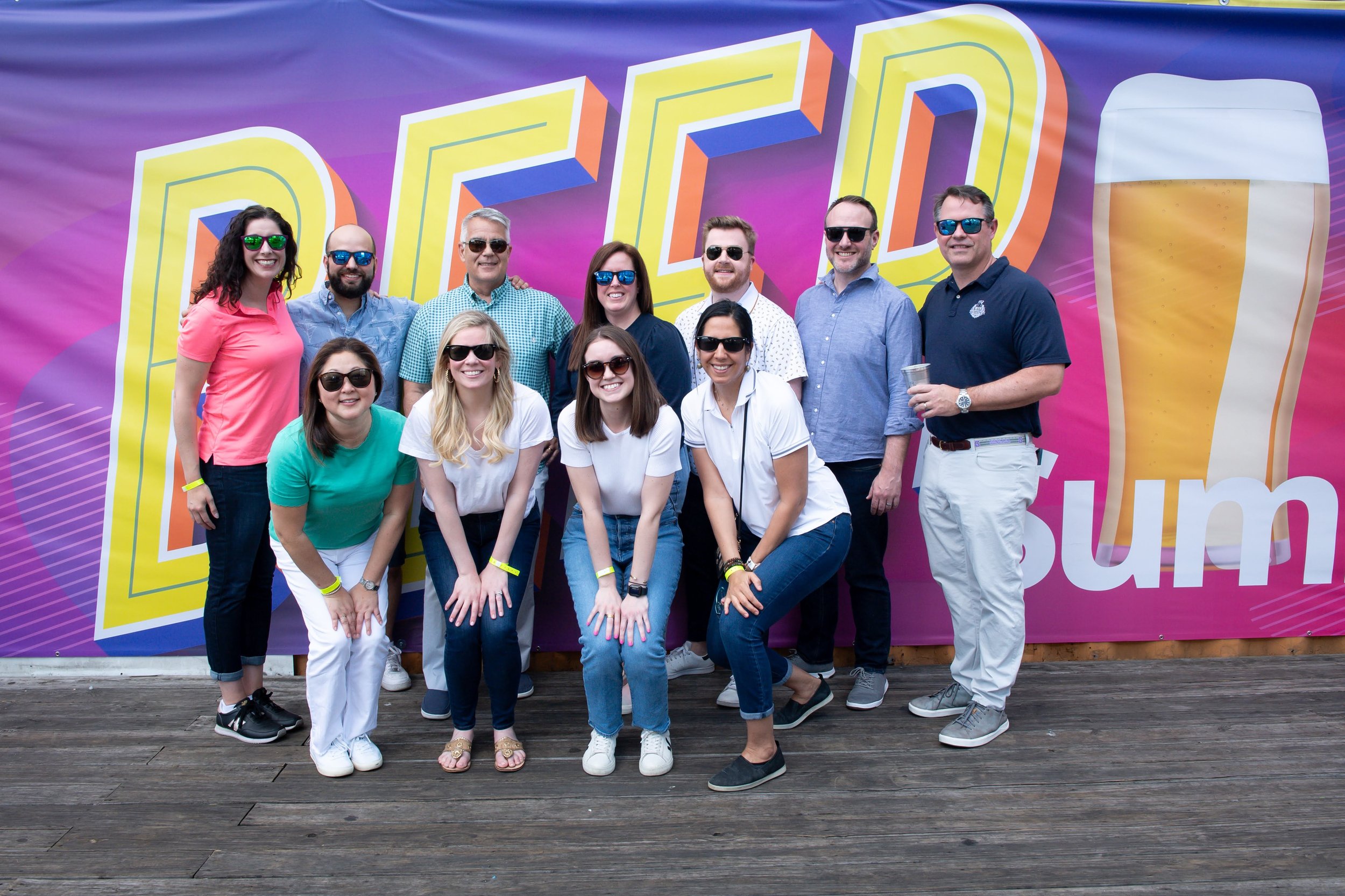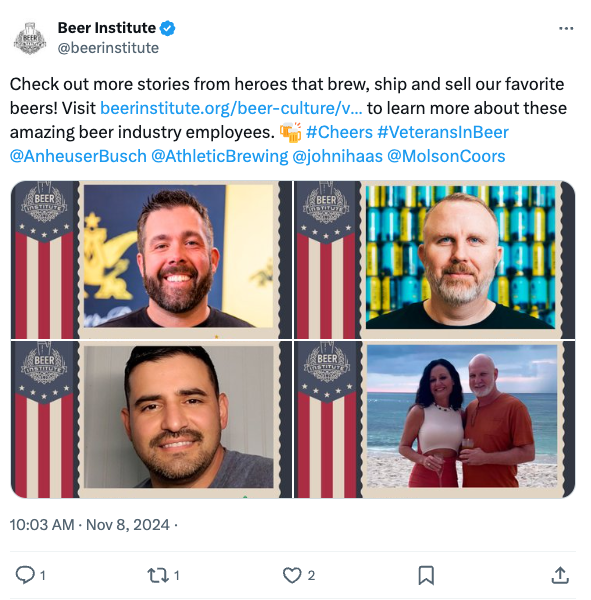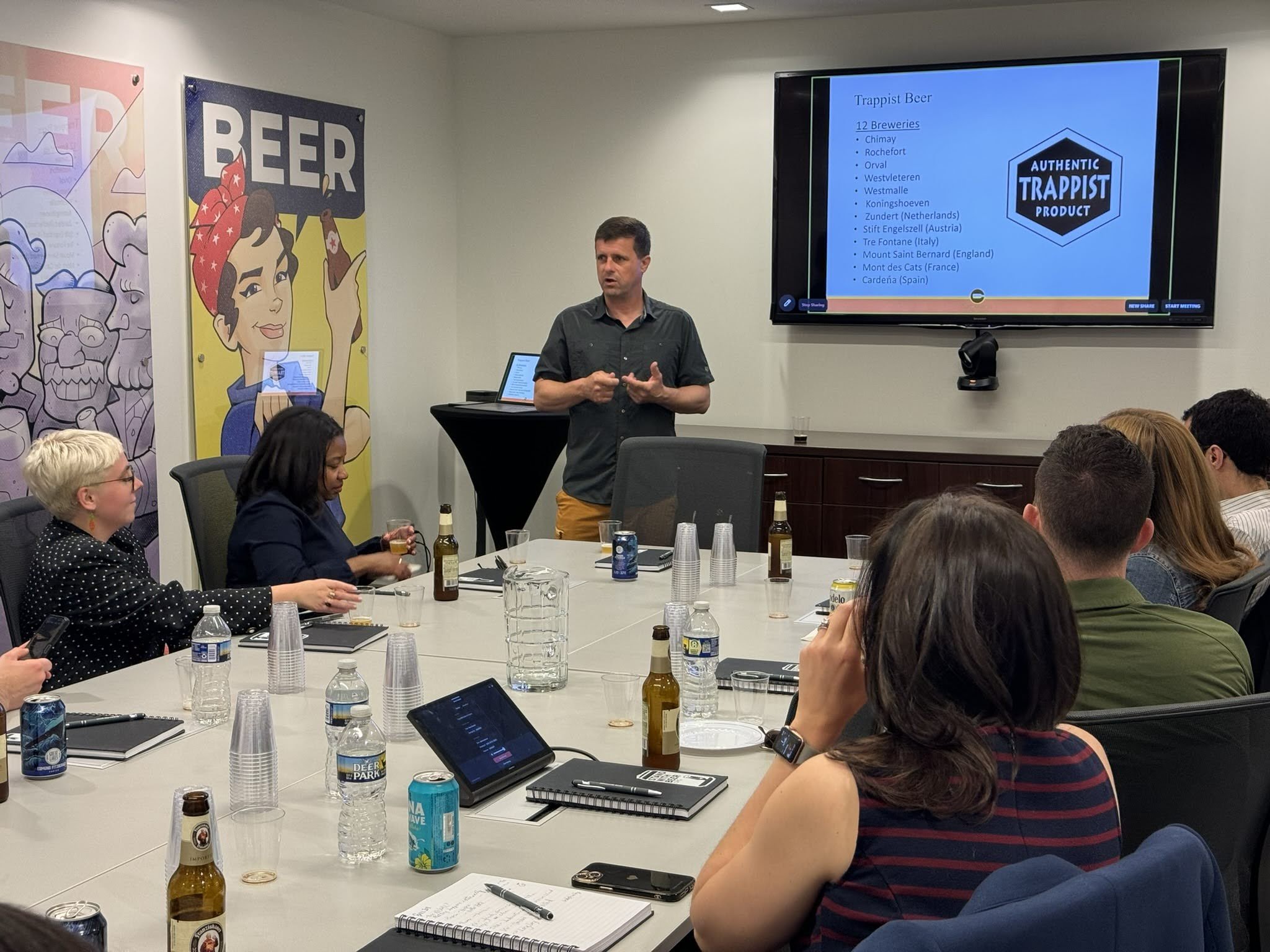
The Beer Institute
Annual Report 2024
A Message from Brian Crawford, President & CEO
Ensuring a Bias-Free, Transparent Dietary Guidelines Process
The U.S. Dietary Guidelines for Americans (DGA) will be updated in 2025, and the Beer Institute spent 2024 actively advocating for a transparent process to inform those guidelines, ensuring that they remain unbiased and based on a preponderance of scientific evidence. Throughout 2024, we educated Congress and the media about the duplicative processes being undertaken to research alcohol beverage consumption for the upcoming 2025 DGAs. In 2023, the Consolidated Appropriations Act congressionally mandated that the United States Departments of Agriculture (USDA) and Health and Human Services (HHS) enter into a contract with the National Academies of Sciences, Engineering, and Medicine (NASEM) to conduct systematic reviews of scientific research on alcoholic beverage consumption and health, ordering that the USDA and HHS use this review when writing the DGA’s alcohol guidance. NASEM issued its comprehensive report in December 2024. However, those same federal agencies secretly assigned a subcommittee within HHS, the Interagency Coordinating Committee on the Prevention of Underage Drinking (ICCPUD), to conduct duplicative, unnecessary research for the 2025 DGA.
To bring attention to this redundant process, the Beer Institute had more than 125 points of contact in Congress, leading to more than 150 meetings that included all committees of jurisdiction for HHS and USDA in both the House and Senate. BI and more than 40 other organizations signed on to the ScienceOverBias.com website, offering additional information and providing consumers a chance to raise their concerns to Congress. To date, more than 100 bipartisan members of Congress have called on HHS and USDA to end the ICCPUD study, including Chairman James Comer (R-KY) of the House Committee on Oversight and Accountability, and to issue subpoenas to HHS and USDA requesting more transparency in the ICCPUD process. In addition, more than 60 media outlets have covered the lack of transparency and potential waste in conducting duplicative federal studies.
The Beer Institute’s policy position is rooted in the National Nutrition Monitoring and Related Research Act of 1990, which established the DGA. The Act requires a preponderance of scientific evidence or medical knowledge before changes can be made to any part of the DGA, including the definition of moderate drinking. The current DGA recommendations, which allow up to two drinks per day for men and up to one drink per day for women and also recommend that some Americans—those who are underage, pregnant or with a medical or family history of concern—not consume alcohol, have been in place for nearly two decades. We believe that any person who has concerns about consuming alcohol should consult their healthcare provider.
Scrutiny into Liquor Loopholes
The Beer Institute actively engaged with Congress throughout 2024, advocating for clear distinctions between beer, wine and liquor. In addition, Team Beer wrote comments to a key tax-writing committee in the House, underscoring our gratitude to Congress for the passage of the Craft Beverage Modernization and Tax Reform Act (CBMTRA) and its permanent place in the tax code. In preparation for the 119th Congress and the forthcoming tax debate, the Beer Institute, in partnership with the National Beer Wholesaler Association, the Brewers Association, the Wine Institute and Wine America, educated policymakers on the importance of differentiating alcohol types via excise taxation. Additionally, we continued to expose the liquor industry's tax loopholes, including the costly IRC 5010 provision, which provides a tax credit for flavored liquor products. Our work prompted a House Ways and Means member to seek clarification and a cost analysis from the Joint Committee on Taxation. This provision costs taxpayers nearly $2.5 billion dollars per decade. The Beer Institute also shed light on the problems inherent in the rum cover-over program, leading to a National Public Radio feature story on the program’s misuses. The Beer Institute remains committed to educating Congress on alcohol tax distinctions and the hidden costs of liquor subsidies.
Stand with Beer is a one-stop digital hub that highlights the significant differences between beer and liquor, the historical context of alcohol taxes and regulations and the existing tax provisions benefiting the liquor industry. The BI engaged in a year-long social media and digital advertising campaign to grow our base of beer advocates and support our Stand with Beer education campaign. This public affairs campaign drove more than 40,000 users to the site and had more than 25 million impressions, ultimately winning the PRNEWS Platinum Award for Best Government Relations Campaign.
State Legislatures Reject Liquor Handouts
At the state level, legislators nationwide stood firm against the liquor industry’s push for expanded market access for canned cocktails and its efforts to reduce longstanding state excise tax rates on their products. The Beer Institute led a coalition of beer industry partners to educate lawmakers to resist the liquor industry’s ongoing attempts to encroach on the beer market and create tax imbalances.
Thanks to the remarkable grassroots engagement of brewers, we successfully defeated bills pushed by the liquor industry and its allies in more than a dozen states. When presented with the facts on product differences and the potential state-level disadvantages of preferential treatment, lawmakers once again rejected these unfair and shortsighted policies.
Beer Institute Releases Principles on Intoxicating Hemp and Cannabis
As state legislatures and law enforcement across the country grapple with the proliferation of unregulated intoxicating hemp products, the Beer Institute released its position on intoxicating hemp and cannabis. In line with a letter from 21 bipartisan state attorneys general who “urged Congress in the strongest possible terms” to address intoxicating hemp, the Beer Institute released a statement supporting Congressional lawmakers’ efforts to close a loophole on intoxicating hemp created in the 2018 Farm Bill.
The Beer Institute supports efforts being made by both state attorneys general and Congress to bring much-needed clarity, consumer awareness and oversight to the production and retail sale of intoxicating hemp products. To that end, in November of 2024, the Beer Institute established principles to help both federal and state legislatures as they grapple with how to address the rapid, unregulated growth of intoxicating hemp products. These principles are based upon the beer industry’s more than 100 years of experience as a highly regulated product following the passage of the 21st Amendment to the U.S. Constitution and the end of Prohibition.
Our principles include:
1. Revenue: We support the establishment of a federal excise tax rate on intoxicating hemp that is higher than the highest rate for any beverage alcohol product.
2. Regulation: We support a robust regulatory framework implemented by the appropriate federal and state government agencies for intoxicating hemp products designed to promote public safety and consumer awareness. Any burden placed on a regulatory agency must be fully resourced and appropriately staffed to ensure proper oversight and enforcement of the law.
3. Responsibility: We support a minimum age requirement (absent a prescription) of 21 years of age with valid ID to purchase, possess, and consume intoxicating hemp products.
We support a “zero tolerance approach” for THC-impaired driving until proper field measurement technology and protocol are widely available and guidance on safe levels of consumption is established.
We call on the intoxicating hemp industry to dedicate resources to develop the use of roadside testing equipment by local and state law enforcement to detect the presence of intoxicating hemp in drivers.
We support prohibitions on public consumption of intoxicating hemp that mirror those presently in place for tobacco.
We support potency testing and warning label requirements for intoxicating hemp products.
We support ensuring that packaging and advertising for intoxicating hemp do not primarily appeal to those under 21 years of age.
We support continuing the federal prohibition against combining intoxicating hemp with alcohol.
4. Research: We support immediate and sustained medical and safety research on intoxicating hemp products, including beverages, to help ensure consumer safety.
We call on the intoxicating hemp industry to cease making health claims that are not substantiated by science or data.
CHEERS to Draft Beer, Category Growth
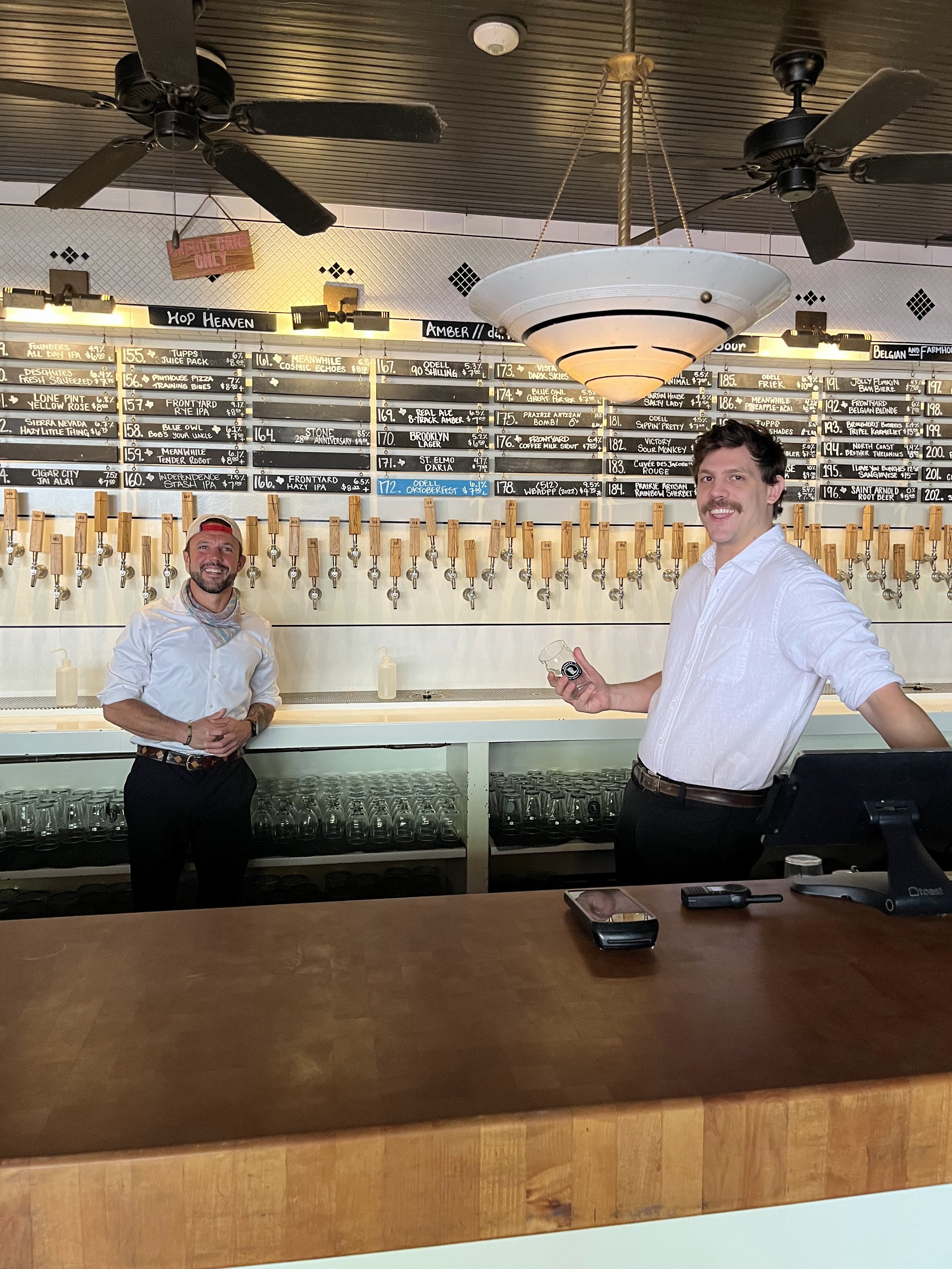
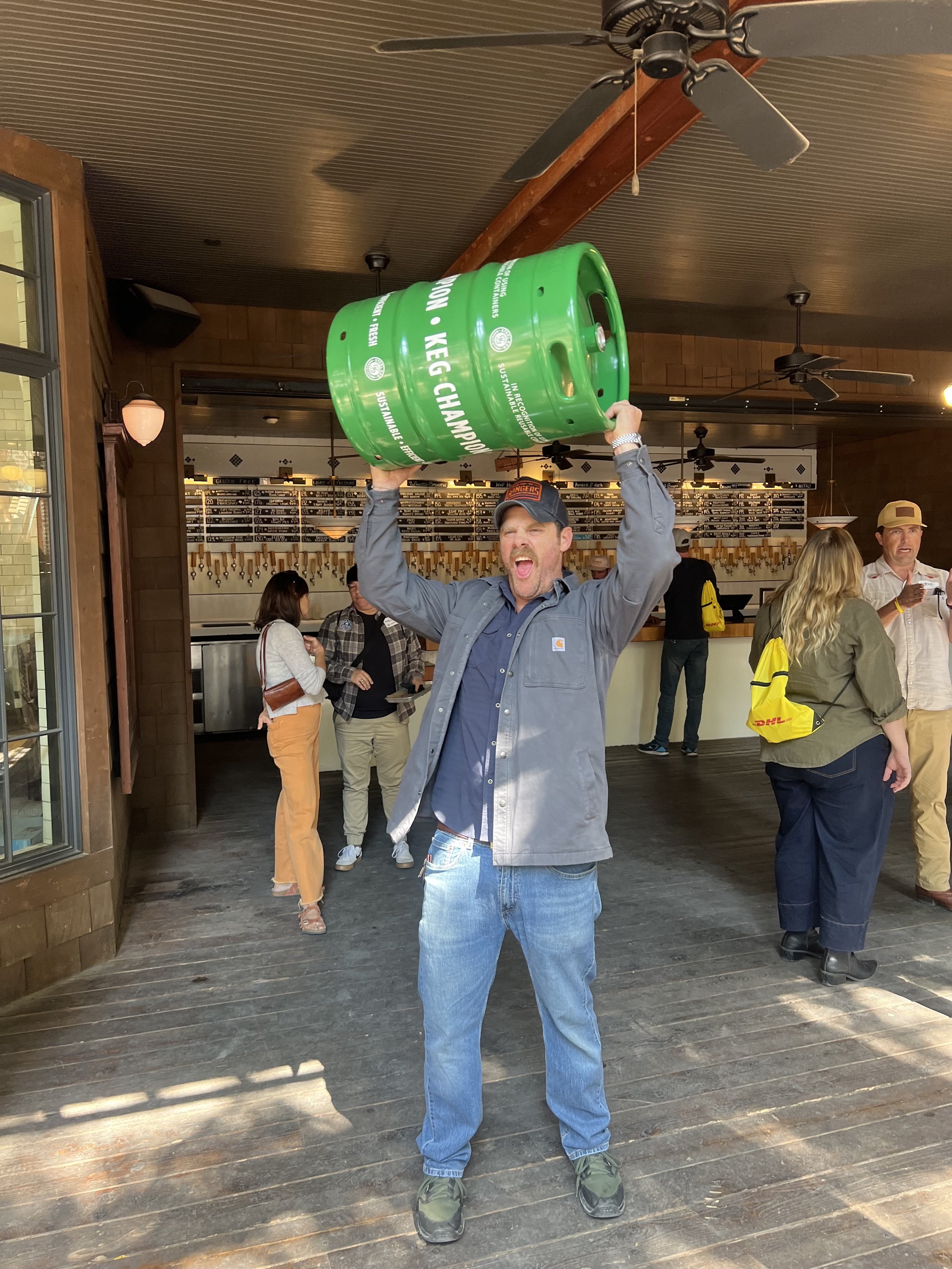

Team Beer worked with members of Congress to introduce bipartisan legislation that would provide tax relief to restaurants, bars and venues using draft line systems. Reps. Darin LaHood (R-IL-16) and Steven Horsford (D-NV-4) introduced the Creating Hospitality Economic Enhancement for Restaurants and Servers (CHEERS) Act (H.R. 7577) on March 7, 2024. Since 2005, the tax code has provided a deduction for qualifying investments in energy-efficient systems on commercial premises. Under the CHEERS Act, this provision would be expanded and applied to all new keg and tap properties, incentivizing the use of draft lines and keg equipment in taprooms, restaurants, bars and venues of all sizes. The CHEERS Act encourages hospitality establishments to serve draft beverages in a sustainable, reusable way and allows bars, restaurants and venues to invest more resources into their employees and businesses.
The legislation garnered 34 cosponsors during the 118th Congress and more than 40 national and local organizations signed on to support the legislation, including the National Beer Wholesalers Association, the American Beverage Licensees, the Franchise Association, the National Restaurant Association, the Independent Restaurant Coalition and the Brewers Association. The Beer Institute will support the reintroduction of CHEERS in the 119th Congress and work towards its passage which will help reinvigorate draft beer while simultaneously providing relief for our hospitality partners.
The Beer Institute supported the CHEERS Act by launching a helpful website, CHEERSAct.org, to educate consumers and business owners about the legislation, targeted digital grassroots advertising to drive support for the bills, and an event in Austin, TX, to showcase the benefits of the bill to local businesses.
Additional Hill and Regulatory Advocacy
BI worked with the Agricultural Committees in both chambers to advocate for the passage of the Farm Bill (H.R. 8467 - Farm, Food, and National Security Act of 2024). Our advocacy focused on crop insurance programs for commodities used to brew beer, such as barley, malt, wheat, rice, corn and hops. We also hosted Barley Brews and Boots on January 31, 2024, to share with Members of Congress and staff the importance of agriculture to the brewing process and its impact on the American economy.
Additionally, the Beer Institute advocated for full funding of the U.S. Alcohol and Tobacco Tax and Trade Bureau (TTB), the chief regulator of alcohol in the United States, to ensure effective industry oversight. The agency has a proven history of maintaining balanced regulations that support the needs of both consumers and brewers.
BeerPAC Hit Multi-Candidate Status
BeerPAC is the Beer Institute’s bipartisan, bicameral federal political action committee established to promote the election of federal candidates who have demonstrated their support for the beer industry. Voluntary support from BeerPAC strengthens the beer industry’s political voice and is vital to BI’s success on Capitol Hill. In 2024 alone, we secured 30 new donors, meaning that 60% of our 2024 donors were first-time givers! We finished the year with 51 donors in this giving cycle, and, as a result, BeerPAC reached multicandidate status. Passing this threshold for the first time, empowers the BI to donate the maximum amount under federal law to true “Beer Champions” in Congress. Throughout 2025, our team will continue to broaden BeerPAC’s donorship base to advocate on behalf of our membership and educate elected officials on our key priorities.
Responsibility Remains a Beer Institute Top Priority
Fatalities on the nation’s roadways have declined slightly, according to the latest National Highway Traffic Safety Administration (NHTSA) estimates. Any progress is good progress, but the Beer Institute will continue to focus especially on fatalities related to alcohol-impaired driving, never losing sight of the reality that even one fatality is one too many. According to the NHTSA, nearly one-third (32%) of all traffic fatalities in 2022 were related to alcohol-impaired drivers.
In 2024, the Beer Institute emphasized its top policy priorities for preventing drunk driving. It sought opportunities in Congress to advocate for measures to help states deal with drunk driving and impaired driving from multiple substances, including THC in cannabis products, benzos and narcotics.
Beer Institute Drunk and Drugged Driving Public Policy Priorities
-
Persistent drunk drivers and drivers with BACs higher than 0.15 are still some of the most dangerous drivers on our roads. Policy measures that produce swift, certain, and escalated penalties are as necessary as ever.
-
Multi-substance-impaired driving is the operation of a motor vehicle while impaired by drugs and alcohol or a combination of drugs. To identify, deter and treat multi-substance-impaired drivers, the U.S. beer industry supports the multi-substance-impaired-driving prevention objectives in NHTSA’s three-year strategy to reduce total traffic fatalities.
-
The Beer Institute is hopeful that emerging in-vehicle technology that senses when drivers are drunk or drug impaired, distracted, or sleepy will help reduce roadway fatalities. Late in 2023, NHTSA began a rule-making process that will clear the way to implement this technology when it released its Advanced Notice for Proposed Rulemaking (ANPR). When the ANPR is published in the Federal Register, a 60-day comment period commences, and the Beer Institute looks forward to engaging in this federal process in 2025.
-
Public policy can support education programs aimed at preventing all forms of impaired driving. Modifying social norms, educating servers and sellers of alcohol beverages, educating the public on the effects of alcohol and other drugs and encouraging the use of designated drivers and rideshare programs are all examples cited in the NHTSA’s “Uniform Guidelines for State Highway Safety Programs.”
Beer #1 Choice, Grows on Key Occasions in 2024
Beer continues to be Americans drink of choice, as 66% of people who drink choose beer. Notably, beer sales grew by 1.6% in 2024 in the weeks that included holidays and significant occasions. Beer continues to bring people together when they gather with family and friends to celebrate.
Beer sales in 2024 were similar to those in 2023. Through the first six months of 2024, the total supply was up 0.1%. The industry faced headwinds over the summer that had little to do with beer but rather external factors that all American consumers faced. Consumer sentiment declined due to political uncertainty about the election and decreasing yet persistent inflation. Consumer savings grew after the pandemic and were depleted by rising costs on almost everything throughout the economy. While warm weather is a boon to beer sales, temperatures were far above average along both coasts and the south, which led to less consumption overall of beverage alcohol. For these reasons, consumers pulled back some in the summer months and shifted consumption toward value-seeking.
As evidence of value-seeking consumers, the economy segment performed about on par with the overall trend. Dollar stores (+10.5%) and mass merchandise (–0.7%) gained share by channel as consumers sought value in their beer purchases.
By segment, imports once again had a strong year, up 2.6%, according to Beer Institute Sales-to-Retailer data. May 2024 marked the first month in which imported beer exceeded four million barrels for the month.
The post-summer months tracked closely with the early part of 2024, indicating that the industry had stabilized to close out the year. Consumer prices for beer mirrored the overall inflation rate in the past year, up 3.1% on at-home beer consumption compared to 3.0% overall. Production costs also stabilized. According to the Producer Price Index, the cost of beer production moderated in 2024, up only 1.0% over the previous year, far less than the annual increase of 6.4% two years ago in 2022.
Through November 2024, the industry was down –2.9% over the prior 12 months but improving from its annual rate in 2023. While on-premise sales continued to lag in the second half of the year, as consumers felt the pinch of increased prices, off-premise sales were strong in October and November. The industry established a new baseline for the year, from which sales can grow in 2025.
Beer Package Mix Report
Beer Institute’s Packaging Mix Report, first released in 1981, is the longest-running source of beer packaging trends. It is the most comprehensive time series on beer packaging that shows the distribution of beer volume by aluminum cans, glass bottles and kegs by state. The latest release found cans growing in package share with 64% of volume in aluminum cans, 27% of volume packaged in glass bottles and draft beer accounting for about 9% of volume. Draft beer has grown 3.1 percentage points since the pandemic in 2020 but remains below its pre-pandemic level of 10.4%. Imported beer remains predominantly packaged in glass bottles, accounting for 55% of imported beer volume.
Code Compliance Review Board (CCRB) and Advertising and Marketing Code
The Code Compliance Review Board (CCRB) is comprised of individuals with various experiences who are independent of the brewing industry. The Board reviews complaints from the perspective of the reasonable adult consumer of legal drinking age and decides whether such complaints identify advertising or marketing materials that are inconsistent with one or more guidelines in the Code. In 2024, the Code Compliance Review Board (CCRB) considered two complaints regarding advertising by brewers.
March 1, 2024 – BeatBox Beverages
The CCRB addressed a Beatbox Beverages complaint about alcohol advertising on TikTok, specifically whether industry members may advertise alcohol products on TikTok. BeatBox Beverages is not a Beer Institute member but agreed to follow the CCRB process to determine whether a complaint presented a violation of the Beer Institute Advertising and Marketing Code and Buying Guidelines. Based, in part, on a statement provided by TikTok confirming compliance with the Ad Code’s 73.8% audience demographic standard, the CCRB did not find a violation.
May 8, 2024 – Constellation Brands Beer Division
The second complaint, “Winning Shot,” alleged a violation of Guideline 3g, to wit, “[m]odels and actors employed to appear in beer advertising and marketing materials should be at least 25 years old, substantiated by proper identification, and reasonably appear to be of legal drinking age.” The complaining consumer questioned whether an actor in a television commercial for Corona beer was 25 years old and appeared to be of legal drinking age. Constellation Brands Beer Division responded that the actor hired was 37 years old (as verified by government-issued identification). Thus, the CCRB did not find a violation of Guideline 3g.
The complaint files and the Beer Institute Advertising and Marketing Code and Buying Guidelines are available on the Beer Institute’s website HERE.
Annual Membership Meeting - Beer Rocks the Big Apple
Beer Institute hosted its Annual Membership Meeting on Election Day in New York City. This unique opportunity allowed attendees to explore how the election outcome would impact the industry, take an informative look at how beer industry policies and regulatory priorities may differ between the presidential candidates and provide an insightful view toward 2025.
We kicked things off with a Reception hosted by Anheuser-Busch at the Fleur Room in the Moxy Chelsea Hotel. The reception’s theme was tied to one of NYC's most iconic combos: sports and beer. The event celebrated that unique connection with special guests—New York Knicks legends Walt “Clyde” Frazier and Larry Johnson.
BI’s Annual Membership Meeting began with Brian Crawford sharing Team Beer’s 2024 successes and our plans for 2025 and beyond. Brian’s message was clear: the beer industry is strong, resilient and uniquely positioned to tackle the challenges before us. The day continued with hot-topic panels on global affairs, the pending election results, on-premise sales, the state of the industry and Dietary Guidelines for Americans.
As the country awaited the results of the election, the BI had its own peaceful transfer of power as we welcomed a new chairman, Molson Coors Beverage Company CEO Gavin Hattersley. Gavin begins his term following two years of steadfast leadership by Anheuser-Busch CEO Brendan Whitworth.
Our 2024 Annual Membership Meeting also debuted new sponsorship and branded networking event opportunities for member companies. Thank you to all companies that sponsored this year’s Annual Member Meeting.

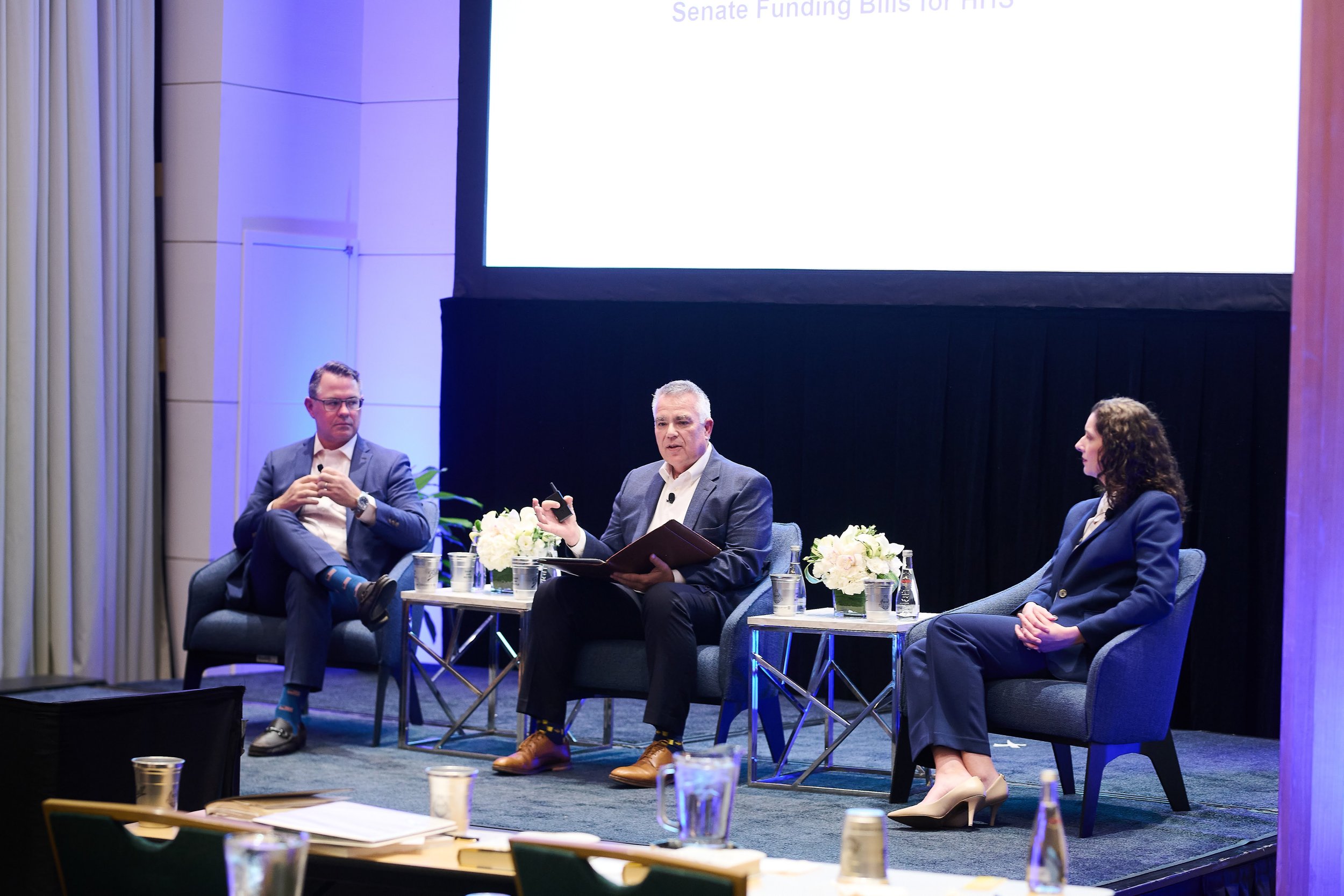


Frederick C. Miller Scholarship
The Frederick C. Miller Memorial Scholarship at the University of Notre Dame was established in 1955 in memory of the late Frederick C. Miller, a former president of the Miller Brewing Company and a Notre Dame alumnus who served the brewing community with dedication and leadership. The scholarship provides financial assistance to the son or daughter of an active employee of a current dues-paying member or employee of the Beer Institute.
In 2024, two sisters, Bridget and Annie Brown, received the scholarship. Bridget graduated from Notre Dame in May, and Annie is a current junior studying abroad in France.
As of June 30, 2024, the endowed fund distribution amount was $112,761, and the cumulative endowed fund distribution amount was $1,571,208. For fiscal year 2024, this fund benefited two students and thirteen students overall since its inception in 2005.
This scholarship has enabled many employees of our member companies to send their children to this prestigious university. The amount awarded is based on the availability of resources from the scholarship fund, the number of qualified applicants and the individual financial circumstances of the student. Details on the scholarship for the academic year beginning August/September 2026 will be available in August 2025. If you want information to share with your employees, email us at info@beerinstitute.org.
The Beer Institute looks forward to maximizing this scholarship endowment’s impact on undergraduate students in the coming years.
Media Work
PR Award
Building on the momentum from last year’s successful Stand with Beer campaign, we are proud to share that Stand with Beer was honored by PRNEWS with a Platinum Award for Best Government Relations Campaign. We are thrilled to see our efforts to celebrate beer and educate consumers recognized in the public eye, and we look forward to engaging in more public affairs campaigns and initiatives in 2025.
Women and Veterans in Beer
BI also launched two social media campaigns during the year to celebrate the 2.4 million hardworking Americans who have found a career in the beer industry: Women in Beer for Women’s History Month in March, and Veterans in Beer for National Veterans and Military Families Month in November. We’re honored to bring this campaign back for another year to celebrate yet another class of incredible women who make our industry great, featuring 18 trailblazing women. This was our first year celebrating Veterans in Beer, and the campaign was a huge success, spotlighting veterans from ten member companies spanning every branch of service. The campaign featured one of our most successful social media posts of the year, reaching more than 6,000 impressions across all social media platforms. Thanks to all who participated.
Media Event Engagements
We hosted another delectable pairing dinner in November with Master Cicerone Neil Witte and James Beard Award-winning Chef Celina Tio at Bluejacket Brewery in Washington, D.C. There, we spotlighted the ongoing conversation regarding the 2025 Dietary Guidelines for Americans, educating reporters from CNN, NBC, the Washington Post, the Wall Street Journal, POLITICO, Scripps and others.
We also hosted another iteration of our Beer 101 seminar and tasting for reporters, giving them a front-row seat to the brewing process and educating them on the beer industry’s priority issues. Correspondents from Bloomberg, PBS, The Hill, Semafor, Sinclair News and more were in attendance. Hosting events like these for the media is a fantastic opportunity to cultivate relationships with notable figures at key publications, and we look forward to continuing these efforts in 2025.
Beer Institute on the Move
Team Beer hit the road from coast to coast, presenting at key industry events, meeting with members and prospective members and other industry leaders throughout 2024. Our staff attended and/or presented at 34 events across the country, including events hosted by NBWA’s Wholesaler Beer Association Executives (WBAE), American Beverage Licensees (ABL), National Association of Business Economics (NABE), National Alcohol Beverage Control Association (NABCA) and HARBOR Aluminum.












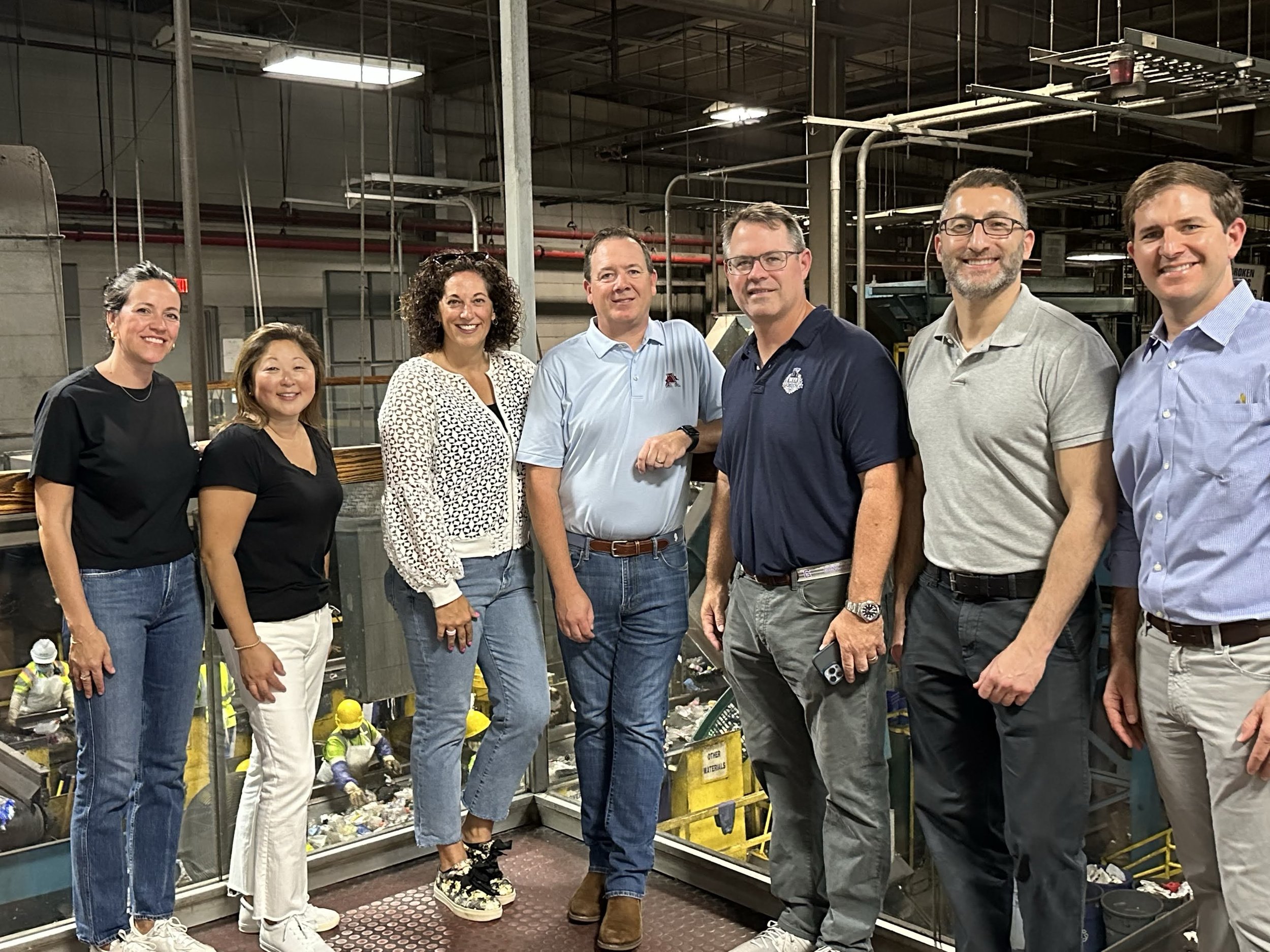
Hosting and Sponsorship
Team Beer celebrated beer and championed our vibrant industry through numerous events throughout the year. The BI hosted or sponsored 23 gatherings for groups such as the Senate Press Secretaries Association, the Tax and Trade Coalition from the House Ways and Means Committee, various House and Senate offices and numerous fundraisers supporting “Beer Champions.”
We supported dinners and galas for prominent Washington organizations, including the Congressional Sportsmen’s Foundation, the Ireland Fund, the National Press Foundation and the National Press Club. We also brought hundreds of Congressional staffers together for our annual Barley, Brews & Boots reception on Capitol Hill.
Hill Climb - Best in Brew
In March, we had an incredibly impactful few days advocating for beer on Capitol Hill during our annual Hill Climb. We participated in nearly 50 meetings across the House and Senate and rallied our representatives in Congress on issues that impact the beer industry, such as the dietary guidelines, tax and regulatory policy and the newly introduced Creating Hospitality Economic Enhancement for Restaurants and Servers (CHEERS) Act.
During the Hill Climb, we hosted our inaugural Best-in-Brew Award ceremony to honor exceptional employees who were nominated by their companies for their dedication to their craft and to the industry. The United States Capitol was the perfect backdrop for the event where we recognized these stellar industry leaders, and we look forward to crowning another class of award winners at next year’s Best in Brew Ceremony.


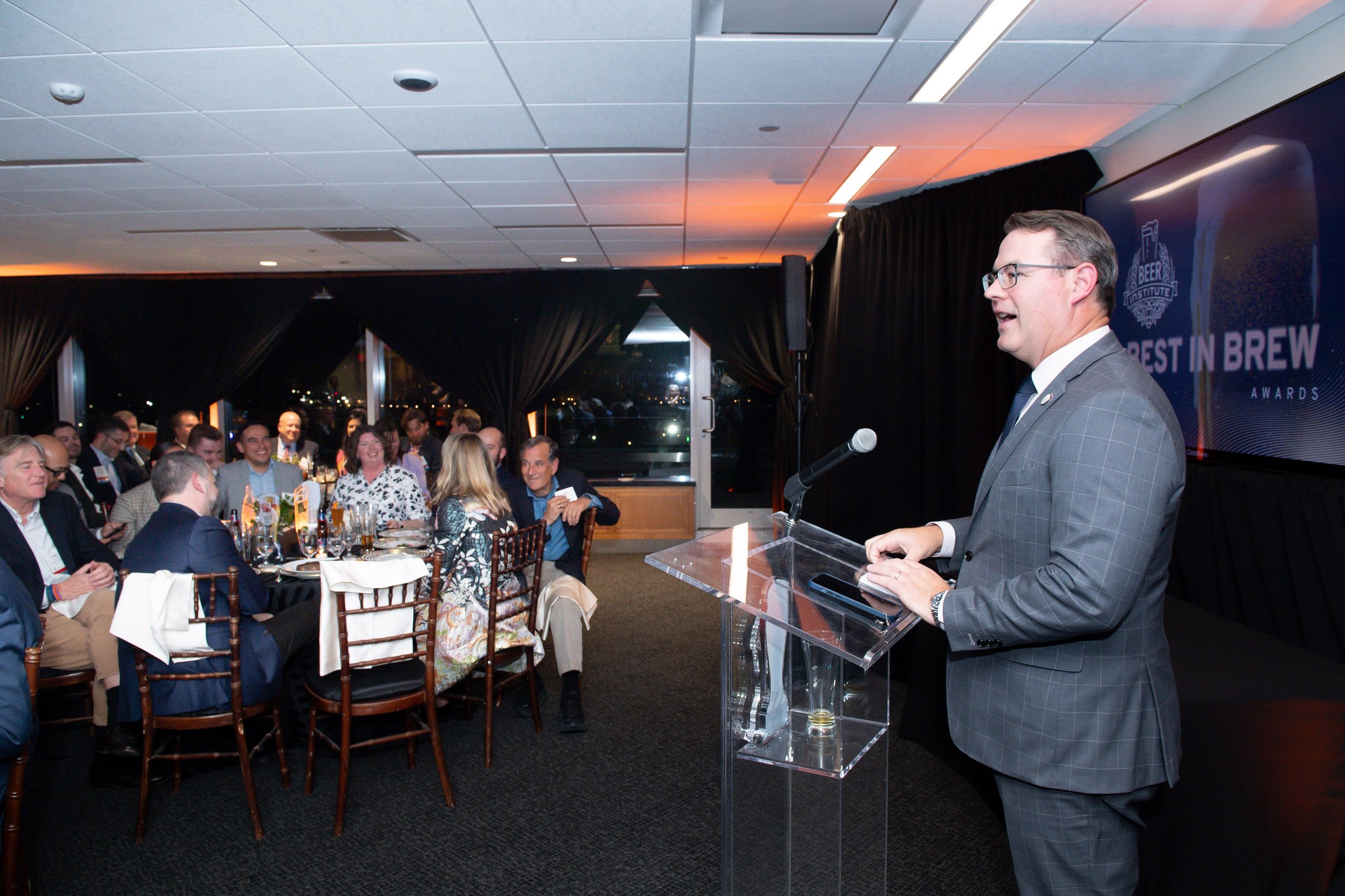



Kickoff to Summer
The BI hosted our second annual Kickoff to Summer at The Bullpen in Washington, D.C., in May. The event brought together nearly 1,200 attendees, including members of Congress, congressional staff, D.C. elite and members of the media to celebrate the start of the summer selling season. Guests enjoyed a variety of member beers, including several low- and no-alcohol options, along with incredible live music from a popular local 90s cover band. This year was the first time the event featured draft beer, allowing us to promote the CHEERS Act and highlight the sustainability of kegs and draft beer with attendees. The venue was adorned with messaging highlighting beer's economic and cultural impact, our industry’s significant investment into low- and no-alcohol beer and differentiation messaging.
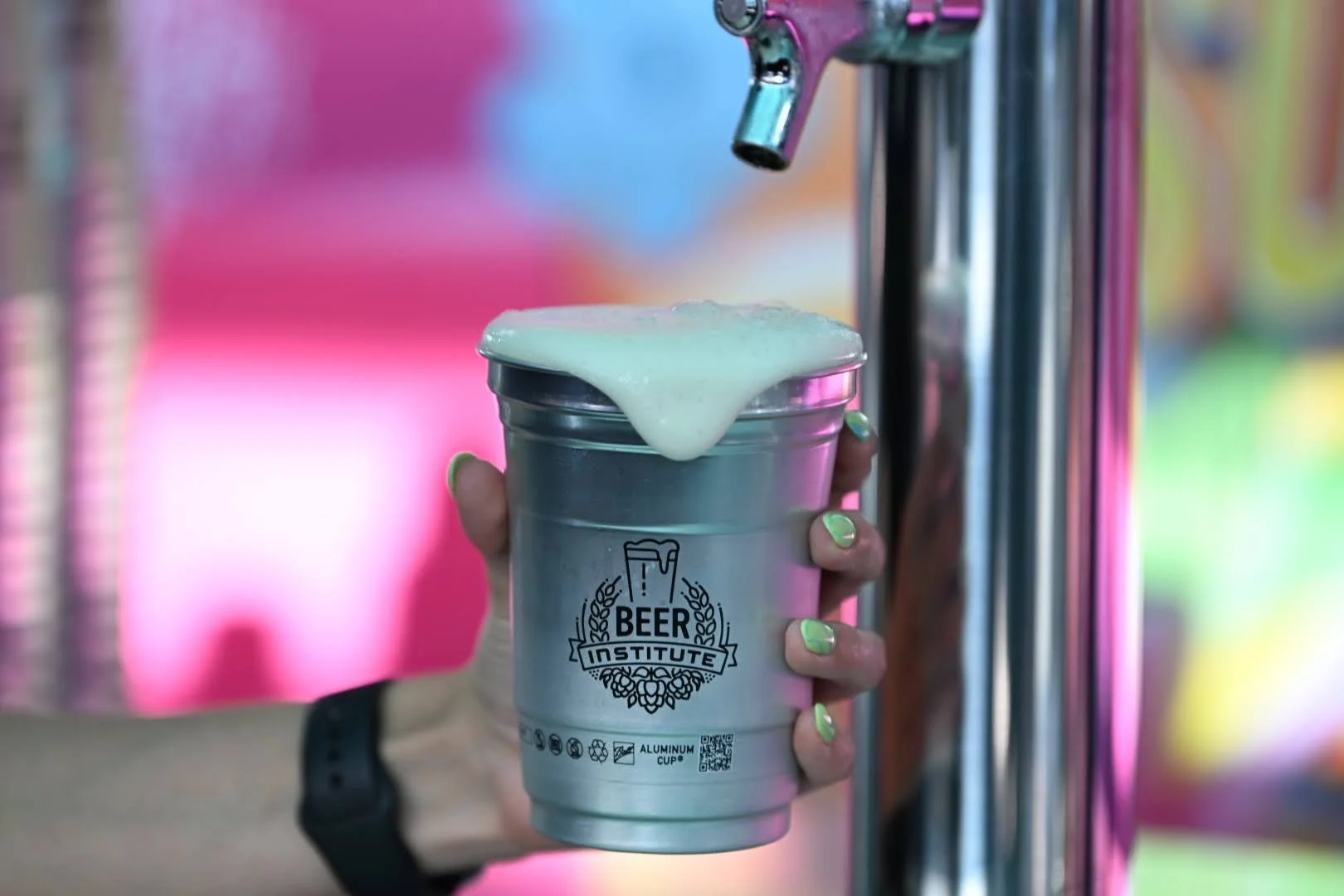



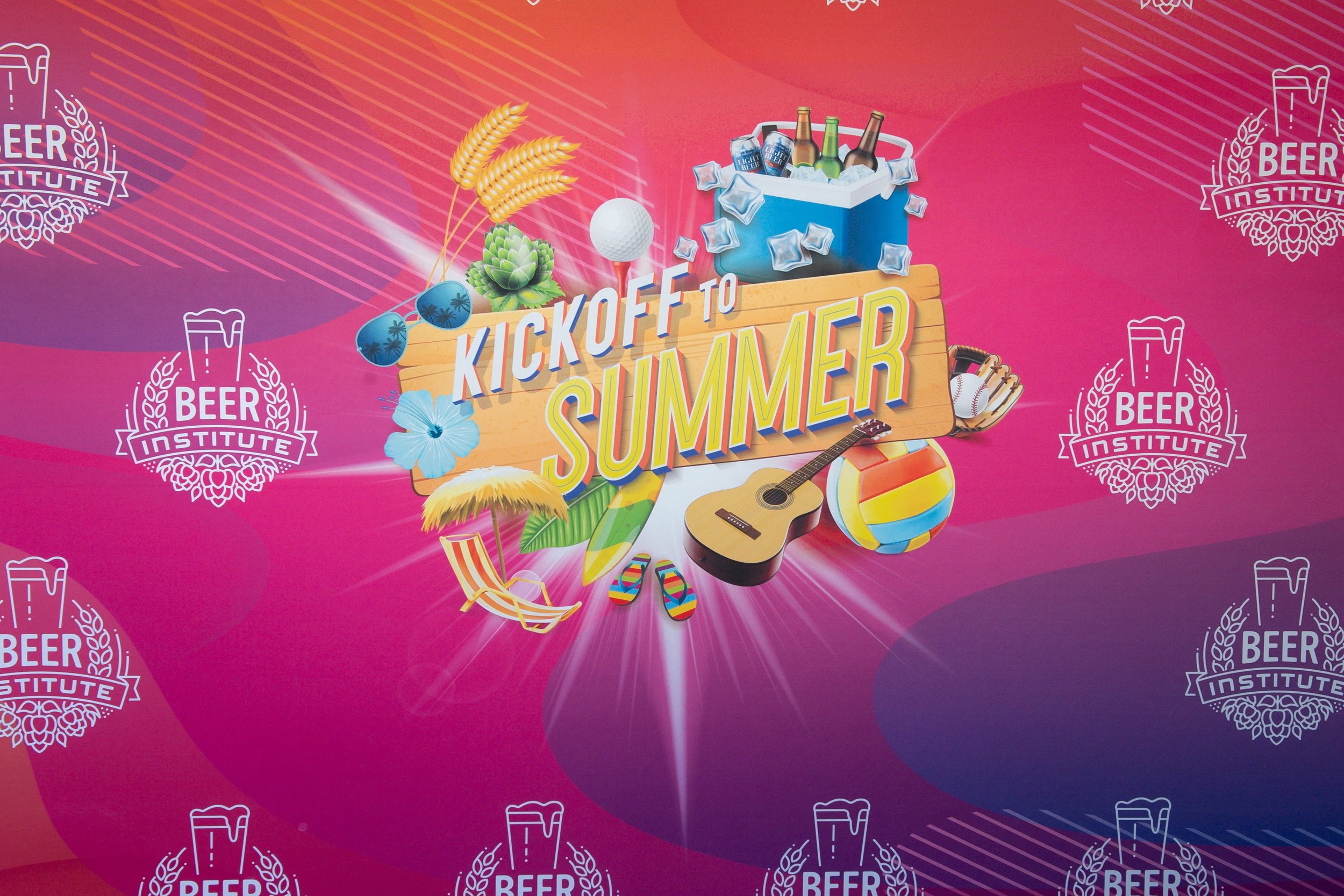
Media Mentions
The Beer Institute celebrated beer occasions throughout the year on radio stations nationwide with coverage in Colorado, Connecticut, Kentucky and Michigan, and dove deep into beer issues in long-form conversations on the U.S. of N/A and Master Brewers podcasts.
BI worked diligently to ensure balanced coverage of the scientific reports that will inform the 2025 Dietary Guidelines for Americans, resulting in stories in Axios, STAT, WineBusiness, VinePair, Politico, WAMU-FM and other specialized outlets.
The Beer Institute also ensured that beer’s voice was featured in outlets like Reuters, Bloomberg Tax, Politico, the Cleveland Plain Dealer, the Seattle Times and the Sacramento Bee, speaking about important issues like liquor tax loopholes and beer's ability to bring people together. Our subject matter experts were also featured in opinion pieces in Industry Dive, the Kansas City Star and the Nevada Independent.
Beer Institute Voting Board
Beer Institute Management Committee
Trevor Theunissen
Molson Coors Beverage Company
Vice President, Government Relations
Chairman & Treasurer
Dan Keniry
Anheuser-Busch
Vice President, Federal Government Affairs
Vice Chairman
David Morgenstern
HEINEKEN USA
Senior Director, Government Affairs
Alternate Director, Beer Institute
Matt Stanton
Constellation Brands
Senior Vice President, Public Affairs
Alternate Director, Beer Institute
Meet the Beer Institute Team
